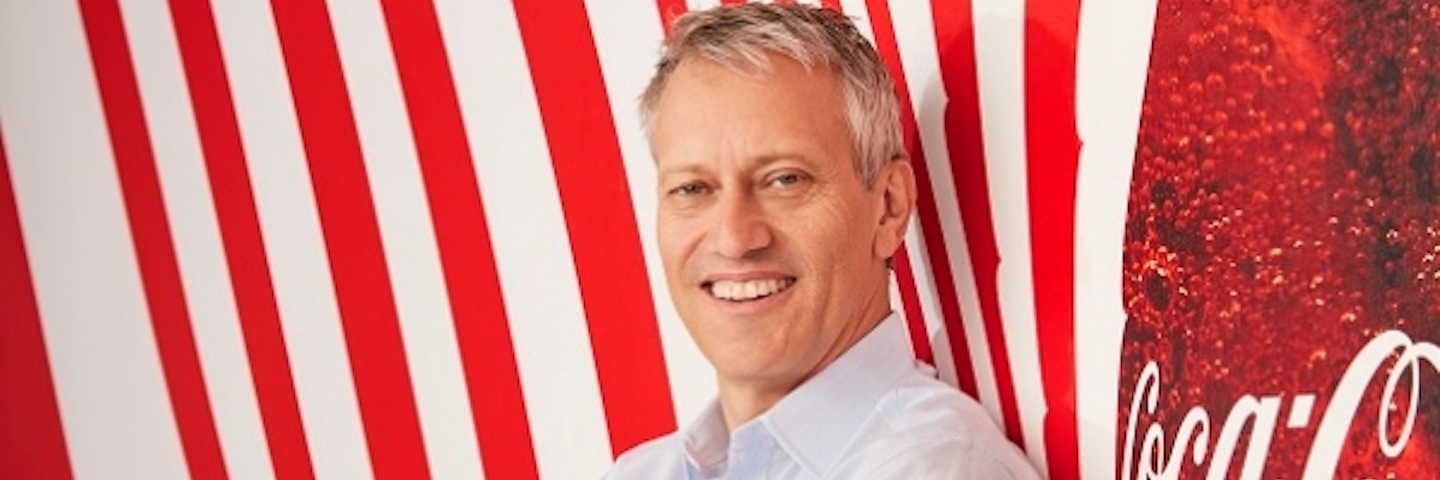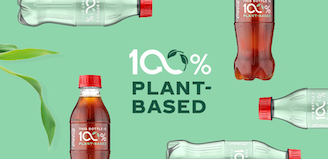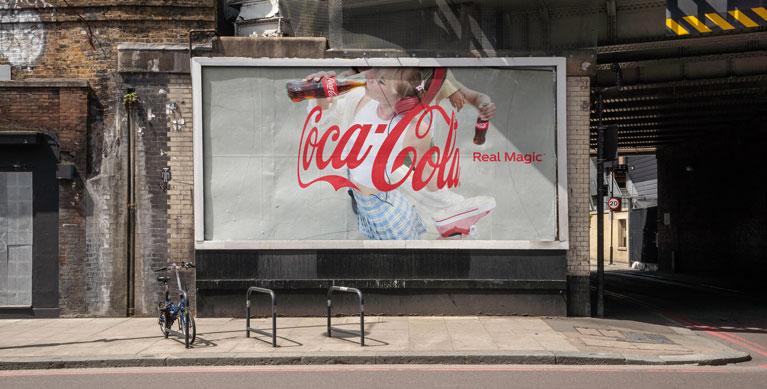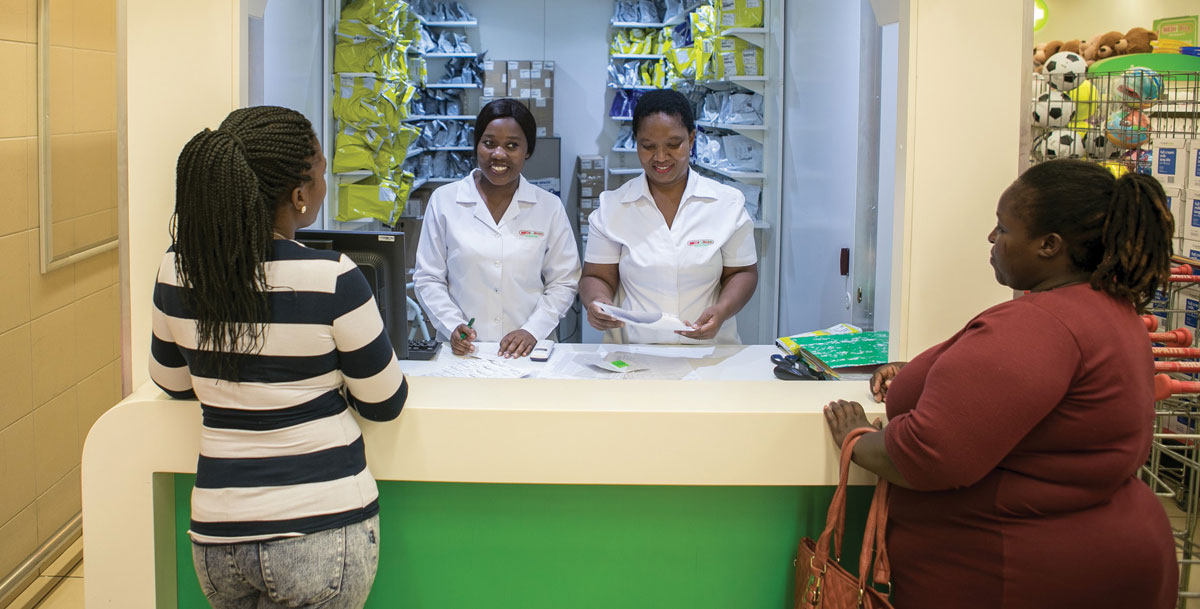
Costa Coffee, Coke's Cultural Shift and More
James Quincey at Barclays Conference
09-06-2018
Coca‑Cola President and CEO James Quincey sat down for a wide-ranging chat today at the Barclays Global Consumer Staples Conference in Boston.
Here are edited highlights from his discussion with Barclays analyst Lauren Lieberman:
On the company’s efforts to embrace a more entrepreneurial culture:
“We need to stay curious about what the consumer is doing, what works for our customers, what are new ways of doing things. If we don't, we will always be trying to manage the business by looking in the rearview mirror.
“We need to stay curious about what the consumer is doing, what works for our customers, what are new ways of doing things. If we don't, we will always be trying to manage the business by looking in the rearview mirror." - James Quincey
“We also must recognize that the world has moved on. In the old days, if you put out one ad per quarter, it certainly made sense to invest the time in making it perfect. But in this new, modern age where the cycle times are much faster, there’s not time for that. Therefore, we need to be a little more like the software side of the world – version 1.0, version 2.0, version 3.0 – to cycle through and learn faster. If we focus on these things, we will be much more forward-focused, and we will lean against the natural tendencies of large and successful organizations.”
On factors driving the company’s revenue growth acceleration:
“I think it’s a function of a couple of things. First, the momentum in the sparkling business. The simple math of our business, at least for the coming future, is that the sparkling business needs to grow in terms of revenue. What we've done is partly the consequence of refranchising, and partly reinvestment over last few years. We also focused on a one-brand strategy for Coke. And we’ve responded to some of the category concerns – reformulations with less sugar, doubling down on Coke Zero Sugar, finding a new path forward on Diet Coke. Working the whole cycle on sparkling and bringing in smaller packs and focusing on revenue has given us some volume growth and some price growth, and therefore, revenue growth.
“We've also taken a more disciplined approach in other categories. We've made some progress, but we need to be disciplined in … pushing some of those number-two positions to leadership, because that's where the scale and the margins come in.”
On his confidence in the sparkling category’s long-term revenue growth potential:
“Globally, sparkling can grow. In the developed world, if we do the right things on brand marketing, on packaging, on innovation, it's in a position where it can grow revenue. And there are other parts of the world where the category is underdeveloped. The objective of seeing the sparkling category grow revenue in low-single digits is absolutely attainable, and it's what's been happening. Over the last few quarters, what we've come back to is a balance of price/mix and volume. Actually, sparkling revenues have been growing consistently for many, many years. They just have been growing more in price and mix than volume. We've got a little bit more balance back into the equation.”
On Coke's recently announced plans to acquire Costa and why the company’s is betting big on coffee:
“If we want to continue and expand our beverage industry leadership well into the future, we need to have a broader, more diversified portfolio. In the global ready-to-drink beverage space, we're number one or number two in every category. But as you look at what consumers are doing, clearly hot beverages … are a major piece. So, we concluded that we really needed a coffee play. If we wanted to be a total beverage provider to our customers across all different channels, we needed somehow to get to coffee.
“What we found over our M&A history is there's a sweet spot for us, which is brands that grow and eventually get to the point where they demonstrate success in a country or in a few countries. They create a brand that wins against robust competition and starts to demonstrate an ability to travel to other countries. Yet, often, they don't have the resources – human, financial or system capabilities – to accelerate that global growth. This is what we have. So, if we can find brands that are proven to win in a few places and have the right formula… that's where we can create a lot of value.
“Costa has done well in the UK and a couple of other countries. And we think the brand can travel, and it brings the coffee piece that we can match with the company and the system to accelerate it over time.”
On the role the company plays in reducing waste and promoting recycling:
“The good news about plastic is it's a completely solvable problem, especially PET. Because PET is fully capable of being collected, recycled and turned back into bottles. It’s fully achievable to get back to a closed-loop economy in terms of PET bottles. We have a strategy we announced in January that focuses on a World Without Waste. By 2030, we want to make sure we recover a bottle or can for every one we sell. New technology will make it easier, but new technology is not needed. What's needed is to solve the organizational problem of collecting the bottles and then putting in the infrastructure to basically chop them up and make virgin material again. We're very committed to doing it, and a lot of other companies also are moving in this space. There's a lot of energy around finding a way of getting this done. Not to underestimate the organizational problem of getting municipalities all around the world and getting collection systems up and running, but it's a fixable problem.”
On Coke's focus on ‘killing zombies’:
“Let me define the zombies. It started with the idea of brands or SKUs. Typically, we'd launch into a category, and you’ve got to be growing double-digits or much faster than the category you're entering because otherwise, you will never be on the track to leadership. There are plenty of tiny brands out there, SKUs, in the Coke system, which have a very low share and are either not growing faster than the category or going slower than the category. They're just consuming management time and resources. And you can extend that into projects and some other ideas. We have not historically been good at getting rid of these things. They would become zombies. They'd be dead, but not actually dead.”
“We've made some great progress in parts of the world… but we haven't done as good a job as we should have done on finishing off the zombies and recycling the money and the resources into the business."


